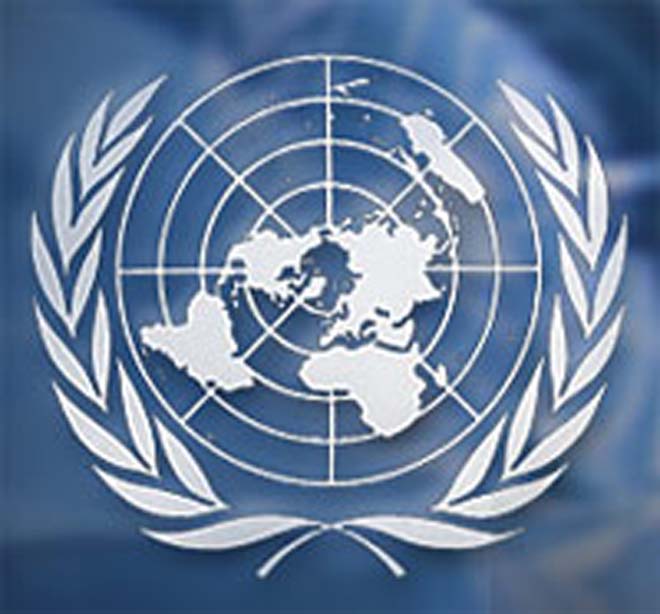The United Nations peacekeeping mission in Ivory Coast evacuated hundreds of civilian staff from its headquarters in the economic capital Abidjan as rebel forces Monday prepared for an assault on forces loyal to President Laurent Gbagbo, DPA reported.
Would-be president Alassane Outtara's forces last week looked like quickly seizing control of the economic capital Abidjan after a surprise lightning assault through the country. Instead they have encountered stiff resistance from remaining pockets of Gbagbo loyalists, who are fighting hard to defend their leader despite widespread desertion.
Gbagbo's forces are defending the presidential palace, state-controlled television RTI and other key locations, while many Abidjan residents have barricaded themselves at home amidst artillery barrages and exchanges of gunfire.
Ouattara's prime minister, Guillaume Soro, speaking on a pro-Ouattara TV station Monday, said the rebels had achieved their first goal of laying siege to Abidjan and now considered the time "ripe for a rapid assault" on the city.
The UN peacekeeping mission, known as UNOCI, said that Ggagbo's special forces had continuously fired on the HQ, and even fired tanks shells that landed in nearby civilian neighbourhood.
Peacekeepers have returned fire at snipers and other forces, UNOCI said.
There is growing concern over the plight of civilians in the West African nation, and Ouattara's rebel forces are suspected of involvement in a massacre in the western town of Duekoue, where charities say up to 1,000 died during the course of last week.
"The secretary-general (Ban Ki-moon) expressed particular concern and alarm about reports that pro-Ouattara forces may have killed many civilians in the town of Duekoue in the west of the country," the UN said, referring a telephone call Saturday night between Ban and Ouattara.
France is continuing its troop build-up in Ivory Coast, adding another 150 soldiers to its peacekeeping operation to boost its number to 1,650, the French military said Monday.
The extra company of peacekeepers was dispatched Monday from a French military base in Gabon, in the second addition of troops in two days.
Meanwhile, French nationals have begun assembling "on a voluntary basis" at three places in the economic capital Abidjan, the foreign ministry in Paris said.
The assembly was taking place at the French embassy, a hotel and the French military base, where around 1600 French and other foreigners have already taken shelter from the fighting between forces loyal to President Laurent Gbagbo and his internationally backed rival Alassane Ouattara.
On Sunday evening President Nicolas Sarkozy said all French nationals in the city would be assembled "immediately" for their protection, fuelling speculation France was preparing a large-scale evacuation after French troops took control of Abidjan airport at the weekend.
In another development, Ivory Coast's army chief has left the South African embassy in Abidjan five days after sheltering there.
South African Foreign Ministry Spokesman Clayson Monyela said General Philippe Mangou left the embassy with his wife and five children on Sunday, but could not confirm rumours the general had rejoined Gbagbo's forces.
Gbagbo has shirked calls to step down since November's elections, in which international observers say Ouattara was elected president. Serious military action by the rebel forces backing Ouattara however only got underway in recent weeks after mediation efforts and sanctions failed to budge Gbagbo.
The Republican Forces of Cote D'Ivoire (FRCI), comprised of northern rebel group New Forces and other armed groups, easily overran Yamoussoukro, the nation's political capital, and the city of San Pedro, the world's largest cocoa-exporting port.
The November poll had been supposed to consign to history the ghost of the civil war that broke out in 2002 and divided the country into the rebel, mainly Muslim north and Christian south.
UN evacuates civilian staff as rebels prepare assault
The United Nations peacekeeping mission in Ivory Coast evacuated hundreds of civilian staff from its headquarters in the economic capital Abidjan as rebel forces Monday prepared for an assault on forces loyal to President Laurent Gbagbo, DPA reported.






